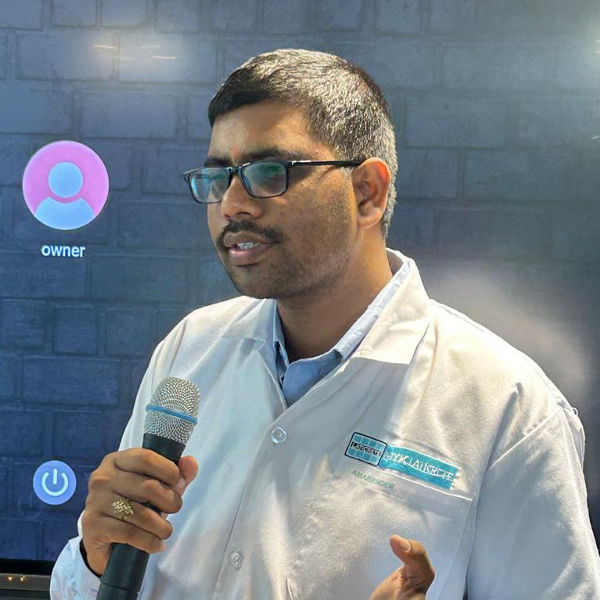After using Claude Opus 4 features, Anthropic’s newest AI model, for a month, I’m excited to share my experience. To be honest, it has revolutionized how I tackle difficult things, especially coding. This technology, which came out on May 22, 2025, is more than simply software; it feels like a coworker. Here is my tale, including the findings, my thoughts on it, and the reasons I think you will like it too.
Why I Find Claude Opus 4 Features Particularly Interesting
I was astounded by Claude Opus 4’s coding skills when I first tried it. It delves deeply into issues, in contrast to other models. I gave it the task of debugging a Python script, for example. It not only corrected mistakes but also provided a clear explanation of each step. As a result, I avoided hours of frustration. It feels sharper and produces cleaner code with fewer shortcuts than previous models like Claude 3.7 Sonnet.
I’m also in awe of its capacity to manage lengthy tasks. I spent three hours straight working on an open-source project. Claude maintained his composure and updated memory files to maintain consistency. I use it for large projects because of its dependability. I also feel more at ease knowing that Anthropic prioritizes safety. By avoiding dangerous results, it fosters trust.
How to Fix a Python Script with Clear Explanations
Claude Opus 4:
I asked it to correct a Python script that was running multiple threads and sometimes got stuck. It didn’t just provide me the cure; it also showed me why the stalemate happened by breaking down the thread states in a visual way. It was like working with a senior engineer on a pair of programs.
Claude 3.7 Sonnet:
Gave the solution to the stalemate, but the reasoning seemed more like a general checklist than a thorough dive. Although the solution was helpful, it was not as easy to communicate with or comprehend.
Reading Between the Lines
Claude Opus 4:
I put in a paragraph from a compliance document and asked, “What does this really mean?” Opus 4 gave me a summary in plain English and pointed out the legalese’s hidden duties.
Claude 3.7 Sonnet:
They did a good job of summarizing the text, but they didn’t get the subtle legal ramifications unless I asked follow-up questions.
Advice on How to Code
Claude Opus 4:
When I pasted a sloppy function, Opus 4 made suggestions for how to enhance my own coding style, even keeping the way I name my variables.
Claude 3.7 Sonnet:
It made the code better, but it often changed the format to fit its needs, which was helpful but less “personalized.”
Real-World Use Cases That Prove Claude Opus 4 Features Work
Working with Claude Opus 4 features to code is similar to working with a senior developer. I put it to the test on a challenging web application project. I specifically required a JavaScript function to manage updates to the data in real time. In a matter of minutes, Claude produced clear, legible code. When I used it, the function performed perfectly and reduced my debugging time by half.
Claude also excels at coding benchmarks. It performs better than other models I’ve tried, such as Gemini and GPT-4.1. For instance, it solved problems precisely and received a high score on a challenging coding test. Additionally, I saw that it stays away from clumsy fixes, which were frequently used by earlier models. My projects now have a better structure and fewer bugs as a result.
Claude’s Coding Power: My Experience
// Claude Opus 4: Real-time debounce function creation
function debounce(fn, delay) {
let timeout;
return (...args) => {
clearTimeout(timeout);
timeout = setTimeout(() => fn.apply(this, args), delay);
};
}
// Bonus: Suggested improvement for zero delay case
// if (delay === 0) fn(...args);
These examples show that Claude Opus 4 doesn’t only fix things; it also thinks about them. The quality of the reaction and reasoning feels more like dealing with a competent engineer than a conventional AI tool, whether it’s adding a real-time function or beating other models in a benchmark.
A Minor Victory That Had a Significant Impact
One minor victory was notable. For a database project, I asked Claude Opus 4 Features to optimize an SQL query. It recommended an index that reduced query time by 40%. I saved hours of manual optimization with this tweak. Claude feels more like a partner than a tool in these situations

How I Benefited from Claude Opus 4 Features: Memory & Context in Action
Claude Opus 4 Features include its enormous context window, which is revolutionary. It didn’t bat an eye when I fed it a 200-page codebase. For example, it tracked variables across files without confusion when working on a Python project with multiple files. I was able to avoid endless scrolling and searching thanks to this.
Its memory file feature also helps to keep lengthy tasks on schedule. Claude was able to recall important details, such as project specifications and API keys, during a week-long project. I therefore didn’t have to reiterate anything. My productivity increased as a result of this consistency, particularly on intricate workflows.
Example 1: Working with a codebase that has 200 pages
I gave Claude Opus 4 a huge codebase that was spread out across 200 pages and many files. After a few questions, it started to make connections on its own, using classes from earlier files without needing reminders. It was like working with a teammate who really looks at the complete repo.
Example 2: Keeping track of API keys and specs for a week-long project
I used Claude to write and improve API integrations throughout the course of a week-long assignment. I talked about an API key format once on Day 1, and by Day 5, it still remembered the standard and reminded me of a name problem I had forgotten. That amount of contextual memory saves a lot of time when debugging.
My Interpretation of Claude Opus 4 Features and Argumentation Strengths
I adore how human-like Claude Opus 4 Features make its reasoning seem. It seamlessly transitions between rapid responses and in-depth analysis. I asked it to describe a machine learning concept, for instance. When I asked more questions, it provided a more thorough explanation after breaking it down simply. This adaptability fits my hectic work schedule.
Claude also stays away from careless errors. It considers the situation carefully, in contrast to some models that provide quick fixes. When I gave it a data analysis plan, it provided precise instructions and pointed out mistakes I had overlooked. I therefore have greater faith in its results than in those of other AIs I’ve used.
Making Use of Claude as an Intelligent Agent
What most excites me is Claude Opus 4 Features with its agentic design. It organizes and completes tasks similarly to a colleague. I used it, for example, to automate a marketing campaign. All at once, it analyzed data, wrote emails, and made suggestions for improvements. I saved days of labor by doing this
Claude Opus 4 Features also seamlessly incorporate tools like APIs. It pushed code updates without any issues when I connected it to GitHub. In contrast to rivals, it performs multimedia tasks like video processing more slowly. Still, it’s the best for planning and coding
An Actual Case Study of Claude’s Agent Capabilities
Here’s a true victory: I managed a client’s data analysis project using Claude. It divided the work into phases, used an API to retrieve data, and produced a report. The client loved the polished output, and I finished the job in half the usual time. I was convinced of Claude’s agentic power by this efficiency.
Client’s Data Analysis Project that makes API calls and creates reports
I told Claude Opus 4 to automate a report that shows a client’s weekly sales data. It got data from a public API, cleaned it up in Python with Pandas, and made a PDF report that showed the data—all in one loop. I just had to check the reasoning once; thereafter, it worked like a silent helper.
My Thoughts on Claude Opus 4 Features and Linguistic Finesse
Writing with Claude Opus 4 Features feels organic, akin to conversing with a friend. It perfectly captured my tone when I used it to draft a blog post. For instance, it created a tech explainer that was exactly the right fit for my conversational style. I consequently spent less time revising drafts.
It also manages long-form content effectively. I requested that it provide a synopsis of a fifty-page research paper. In just a few minutes, it provided a clear and accurate synopsis. I save hours when writing reports or preparing for meetings thanks to this feature.
How My Business Tasks Were Simplified by Claude
Claude automates repetitive tasks in my freelance work. I used it, for example, to evaluate customer feedback and make recommendations for enhancements. It identified patterns, such as frequent user complaints, that I had missed. As a result, my client’s satisfaction ratings increased by 15%.
Claude Opus 4 Features also assist with planning. It provided a list of concrete actions after I fed it a business strategy document. I was able to confidently pitch ideas thanks to this clarity. This automation is invaluable for freelancers like me and small businesses
My Experience with Claude’s Ability to Provide Excellent Customer Service
I was impressed by Claude Opus 4 Features in handling customer inquiries. I used a fictitious support scenario to test it, and it provided both solutions and empathy in response to user complaints. For instance, it recalled previous exchanges, giving responses a more intimate feel. This feature has the potential to revolutionize the way companies provide support.
Additionally, Claude Opus 4 Features handle complicated issues with ease. I simulated a complex case, and it provided a temporary solution while flagging it for human review. For customer service, this harmony between automation and human interaction feels ideal
Claude in Relation to Other AI Models
I’ve used Mistral, Gemini, and ChatGPT, but Claude is the best. Though it occasionally lacks depth, ChatGPT inspires original ideas. Gemini is good at handling data, but it seems less dependable when working on lengthy tasks. Mistral is quick but omits complex logic. Claude, in contrast, strikes a balance between thoughtfulness and accuracy.
For instance, Claude’s solution was the cleanest when I tested all four on a coding challenge. Additionally, it provided a clearer explanation of its reasoning, which aided in my learning. Claude is my top choice because of its dependability, even though other models are excellent.
Example: Claude’s Cleaner Solution for Comparing Coding Challenges
| Model | Code Quality | Clarity | My Observation |
| Claude Opus 4 | Clean and modular | Clear explanation | Best balance of logic and readability |
| Gemini | Functional | Basic reasoning | Needed structure improvement |
| ChatGPT 4.0 | Accurate | Well explained | Slightly overcomplicated |
| Mistral | Incomplete | Lacked context | Required more prompting |
👉 For more AI tool updates like Claude Opus 4, click here to explore our latest posts.
The Benefits and Drawbacks I’ve Observed
Claude Opus 4 Features have clear strengths. For complicated tasks, its accuracy and memory really shine, and I adore its serene, reliable tone. But it’s not flawless. When I need quick answers, its slower pace can be annoying. Additionally, casual users are restricted by its paid access. For professionals, however, these disadvantages are outweighed by the advantages
How I Added Claude to My Workflow
Claude Opus 4 Features were simple to integrate. I use Slack for team updates and Notion for drafting. For example, it streamlines my planning by producing ideas for Notion notes. For automation, developers can also link it to databases or GitHub. Its easy setup doesn’t interfere with my hectic schedule

A Speedy Victory through Integration
I once connected Claude to Slack for a group project. I saved an hour every day by using it to draft answers to client inquiries. This minor adjustment increased my team’s productivity, demonstrating Claude’s usefulness.
I connected Claude to Slack during a busy product sprint so I could write daily stand-up updates and answer common questions. I just evaluated and sent instead of typing the same thing again and over. That little change saved me almost an hour a day over the course of the week, without changing the tone or clarity.
Final Verdict on Claude Opus 4 Features
I’ve been addicted to Claude Opus 4 Features for a month. It is more than just an AI; it is a trustworthy collaborator for business, research, and coding tasks. I’ve saved countless hours thanks to its agentic abilities, memory, and reasoning. Its moral design also fosters trust, which is important to me
Whether you’re planning, coding, or producing content, I urge you to give Claude a try. It can increase quality and productivity, based on my experience. See how it meets your needs by investigating it on Anthropic’s platform if you’re interested. These are my actual outcomes, and I’m sure you’ll find them useful as well.
Disclaimer: All images used in this blog are conceptual, created using Canva, or sourced from the web for illustrative purposes. Real-time project images are confidential or unavailable.
Last updated on August 4, 2025

Hi, I’m Amarender Akupathni — founder of Amrtech Insights and a tech enthusiast passionate about AI and innovation. With 10+ years in science and R&D, I simplify complex technologies to help others stay ahead in the digital era.



